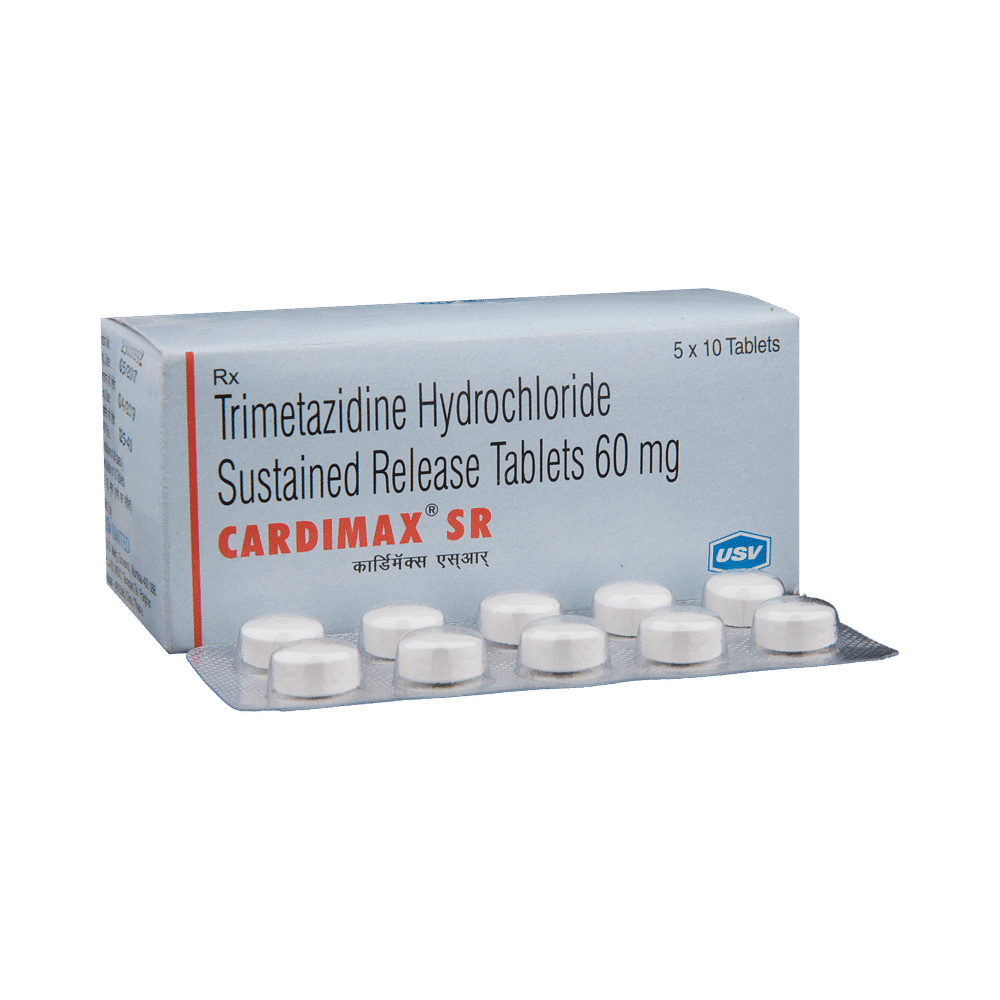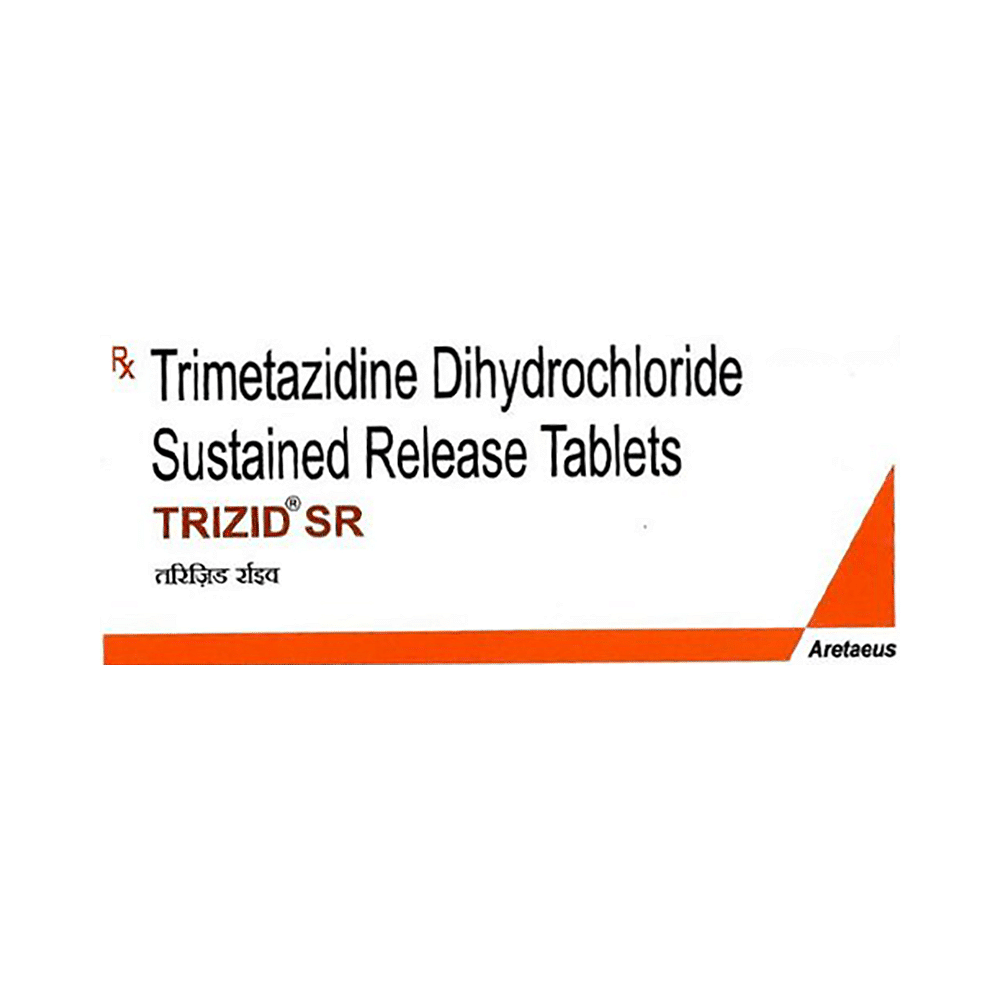
Cytocon SR 60mg Tablet
Manufacturer
Concertina Pharma Pvt Ltd
Salt Composition
Trimetazidine (60mg)
Key Information
Short Description
Cytocon SR 60mg Tablet is an anti-anginal medicine used for treating heart-related chest pain (angina).
Dosage Form
Tablet SR
Introduction
Cytocon SR 60mg Tablet should be taken regularly as advised by the doctor. You should take it with or without food and at a fixed time. Your doctor will decide how often you should take this medicine. This may change from time to time depending on how well it is working. You should take this medicine regularly to get the most benefit even if you feel fine. It helps in preventing future harm. If you stop taking it, your chest pain may come back. You can improve the health of your heart by making some lifestyle changes such as quitting smoking, cutting down on alcohol, eating well, taking regular exercise, and managing stress.
Directions for Use
Take this medicine in the dose and duration as advised by your doctor. Swallow it as a whole. Do not chew, crush or break it. Cytocon SR 60mg Tablet is to be taken with food.
How it works
Cytocon SR 60mg Tablet is an anti-anginal medication. It decreases the oxygen requirement of the heart by shifting its metabolism from fats to glucose. As a result, the heart works more efficiently.
Quick Tips
Cytocon SR 60mg Tablet prevents new attacks of angina but does not stop an acute attack. Does not affect heart rate or blood pressure at rest or during exercise. Improves HbA1c and blood sugar levels in diabetes patients. Does not affect heart rate or blood pressure at rest or during exercise. Improves HbA1c and blood sugar levels in diabetes patients.
Related Medicines

Cardimax SR Tablet

Trizid SR Tablet

Cardiozine 60mg Tablet SR

3-Kat 60 Tablet SR

Myovedon 60mg Tablet SR

Taz 60mg Tablet SR

KADRIN 60MG TABLET SR
Frequently asked questions
Is Cytocon SR 60mg Tablet a beta blocker?
No, Cytocon SR 60mg Tablet is not a beta blocker. It is an anti-anginal medicine used in combination with other medications to treat angina pectoris (chest pain caused by coronary disease). It protects heart cells from being affected by reduced oxygen supply during episodes of angina.
Who should not take Cytocon SR 60mg Tablet?
You should not take Cytocon SR 60mg Tablet if you are allergic to it or have severe kidney problems. Patients with Parkinson's disease should also avoid taking this medication, as it is a neurological disorder affecting movement and causing symptoms such as trembling, rigid posture, slow movements, and a shuffling, unbalanced walk.
Can Cytocon SR 60mg Tablet be used in elderly patients?
Cytocon SR 60mg Tablet should be used with caution in patients aged more than 75 years. A lower dose is usually prescribed to reduce the risk of adverse effects, and these patients should be continuously monitored.
Does taking Cytocon SR 60mg Tablet increase the risk of falling down frequently?
Though it is rare, falls may occur with use of Cytocon SR 60mg Tablet. This can be due to instability while walking or a drop in blood pressure when standing up, and the risk may be higher in elderly patients. Therefore, these individuals need to be more careful and should be monitored.
Does Cytocon SR 60mg Tablet cause drowsiness?
Yes, Cytocon SR 60mg Tablet may make you feel dizzy and drowsy. As a result, you should avoid driving or using heavy machinery if these side effects occur.
How should Cytocon SR 60mg Tablet be taken?
You should take Cytocon SR 60mg Tablet exactly as prescribed by your doctor. It is meant for oral use, so you should take the tablets with a sufficient amount of liquid, such as water, and can take this medication with or without food.
What are the possible side effects of Cytocon SR 60mg Tablet?
The common side effects of Cytocon SR 60mg Tablet include dizziness, headache, abdominal pain, diarrhea, indigestion, and hives, rash, and itching. Its use may also make you feel sick and weak. The rare side effects may include fast or irregular heartbeats (also called palpitations), a drop in blood pressure on standing which can further cause dizziness, lightheadedness, or fainting, falls, and flushing.


